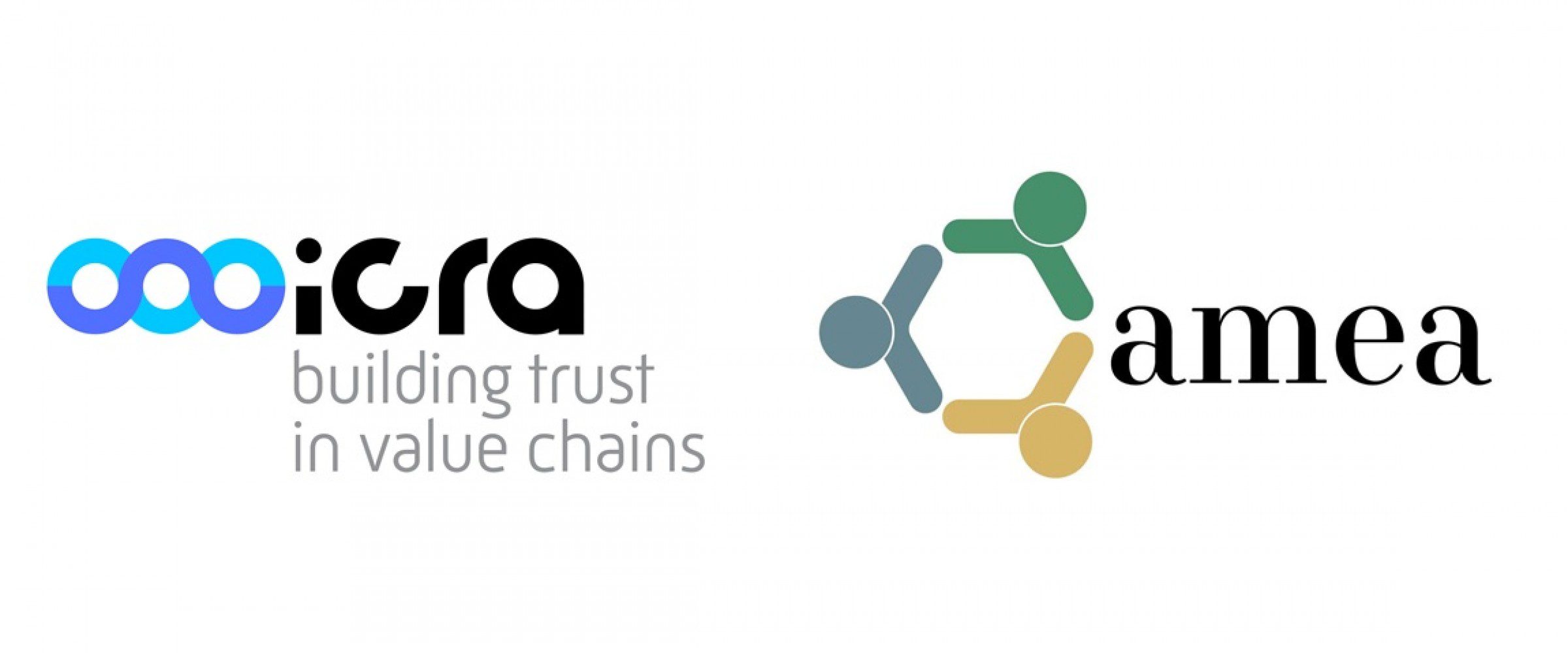
iCRA joins Agribusiness Market Ecosystem Alliance
Following its renewed strategy to focus on its agribusiness coaching services enabling efficient and sustainable sourcing from small holder farmers, iCRA is proud to announce having joined the Agribusiness Market Ecosystem Alliance as development partner.
“Amea’s vision of agribuiness market ecosystems very much aligns with iCRA’s”, explains iCRA’s Executive Director Richard Hawkins. “By joining this likeminded network to share experties and learning, we believe we can strengthen our new value proposition of improving peformance of small holder value chains.”
Over the past months iCRA started implementing its new strategy to become a professional, business oriented provider of integrated agribusiness coaching services by 2020. Having built up its field experience in developing agribusiness networks during the past 6 years, iCRA is now spearheading this service targeting the private sector. Our vision is that sustainable food chains need the inclusion of small holder farmers and for that to happen these farmers, as well as the business and support actors they work with, need more than technological, managerial and financial support alone.
Trustful business relationships and improved collaboration in local agribusiness networks make small holder value chains function better. These lead to efficient operations, security of supply, meeting market demands and continuous improvement of the supply chain as a whole. Although seemingly obvious, this does not happen automatically. Active facilitation and strengthening of specific capacities to partner are required. This is iCRA’s focus and expertise.
Richard Hawkins continues: “We believe that being part of a likeminded network ourselves we can achieve more. AMEA’s objective of standardising the definition, measurement and improvement process of farmer group professionalism will help us to make our interventions more effective, measurable and scalable. At the same time we think iCRA’s expertise on coaching and trust building, as well as its vast network in the education and research world will add value to the effectiveness of this standardised approach. The challenge of sustaining agriculture and securing food supply is simply too large and complex to go alone. We are grateful that AMEA exists and we are looking forward contributing to its development.”
About iCRA
iCRA is an international training and coaching service provider with more than 35 years of experience working in sub-Saharan Africa, Latin America and Asia. We aim to improve performance of small holder farmer value chains to better integrate the farmers towards mature and independent businesses, as well as to orient supporting knowledge services (research, education and advisory services) to value chain needs. We achieve this through transforming the way value chain actors relate to each other, building strong, beneficial relationships, trust and partnerships to facilitate the transfer of information, skills and services and to create new knowledge to better perform together.
About AMEA
The Agribusiness Market Ecosystem Alliance (AMEA) is a global alliance of firms standardizing the development of professional farmer organizations (FOs). We believe that transforming farmer organizations into professional businesses is the key to alleviate poverty and food security. At AMEA, we define global standards for professional farmer organizations. To support farmer organization lift their professional capacity, AMEA provides cost-effective and integrated system of standards, best-in-class assessments, training materials and certifies the trainers and coaches. This gives buyers, banks and input supplier greater confidence to engage with farmer organizations in stronger, more resilient supply chains. We offer a transformative solution for farmer and supply chain business development.

Recent Comments